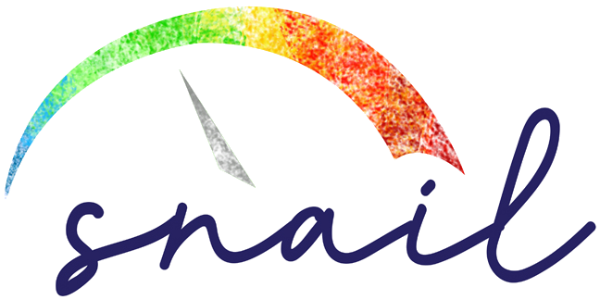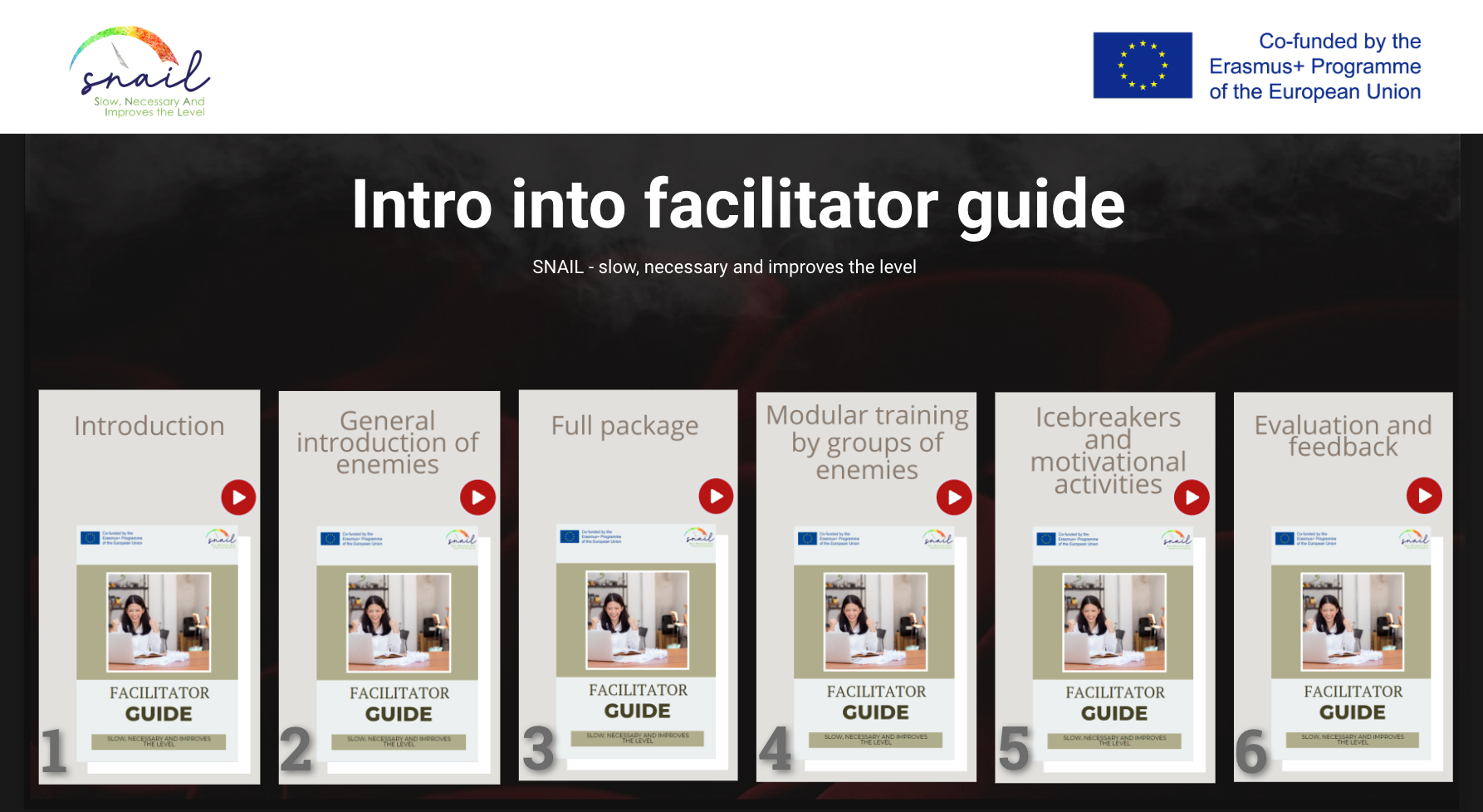Slow Work
Resources
Slow Down to Speed Up
Nowadays, work pace is hectic, and multitasking is recognized as an important skill. However, the idea that we are more efficient when performing several tasks at once is incorrect. Multitasking in the workplace, in fact, has a direct influence on reduced concentration and focus, increases the chance of error at work, and causes anxiety and stress. It is also one of the reasons why we need to find a balance between business and private residence and it is an area where slow and focused work become important.
The aim of the SNAIL project is to raise awareness among company managers and employees about the importance of reducing the speed of work, increasing focus on a single task, and thus avoiding multitasking. Multitasking can lead to burnout in the long run, which is a common occurrence in today’s fast-paced work environment.

In the SNAIL project, three project results were developed:
- “SLOW BOSS” – a study on the importance of focus and the dangers of multitasking and training system for managers,
- “WORK SLOWLY, WORK BETTER” – a common report of focus groups/interviews, intended for employees, with the goal of how to slow down the internal work pace for better productivity and creativity, and educational tools for employees,
- “SLOW TRAINING”, where the Handbook for facilitators was created, which serves to train mentors in companies on the topic of better focus on individual tasks.
SLOW BOSS
In the first part of the project, together with the project partners, we made a concrete analysis of the situation in each partner country, which helped us gain insight into the amount of time spent at work, the general productivity of employees, related to the level of productivity, absenteeism, multitasking and its impact on efficiency and productivity, emotional pay and motivation. The partners then developed 24 training modules that correspond to enemies at work and are available on this link.
WORK SLOWLY, WORK BETTER
In the first part, we conducted interviews with representatives of selected companies in the form of focus groups. In this task, we focused on the work rhythm of employees. The partners used the 12 enemies of focused work as a starting point to identify the different opinions of managers and employees. Each partner conducted workshops in three companies of different sectors and sizes in which managers and employees completed a questionnaire. These workshops gave employees the opportunity to become aware of the problems and obstacles that exist in their companies and provided useful information regarding work pace and productivity.
In the second part, partners consortium tested developed tools in practice. The aim of the testing phase was to check whether the tools developed as part of the project are accurate, effective and useful from the perspective of the people who will use them (managers, trainers, facilitators, consultants, psychotherapists) and from the perspective of their final beneficiaries (entrepreneurs, leaders, and SME workers).
SLOW TRAINING
In the last part of the project, the partners produced a Handbook for facilitators, which contains information about the project, key findings and modules and tools – available in all partner languages and in e-format. The mentioned manual will be used by trainers and moderators in the implementation of the SNAIL tool system in companies.
Important!
Slow work does not mean that you work slow, but rather that you focus more on individual tasks and are under less time pressure. According to managers, it is also important for workers to become aware of the patterns and try to introduce new habits into their work schedule. To achieve this goal, 24 tools were developed for practical workshops.
All of the above is the essence of the SNAIL project, which is based on greater productivity at the workplace, calmness at work, dedication, focus and pleasure in the creative process. It is focused work, indeed, that often leads to better results.
Intro into facilitator guide – short introduction videos of each chapters

